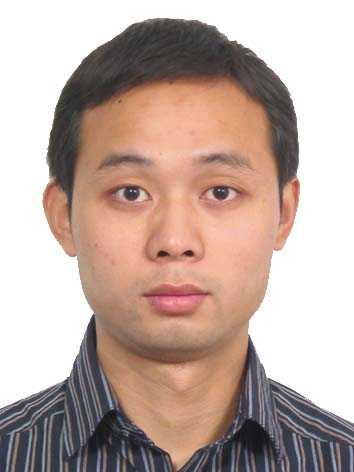
Nan Peng
Title: Professor
Academic degree: Ph. D
Tel: 027-87281267
Email: nanp@mail.hzau.edu.cn
Research filed: Applied Microbiology
Education experience
2000.09-2004.06, Huazhong Agricultural University, Bachelor of Bioengineering
2004.09-2009.12, Huazhong Agricultural University, Ph. D
2008.02-2009.11, University of Copenhagen, Visiting Ph. D student
Career experience
2010.06-2012.12, College of Life Science and Technology, Huazhong Agricultural University, Lecturer
2013.01-2017.12: College of Life Science and Technology, Huazhong Agricultural University, Associate Professor
2017.01 to now: College of Life Science and Technology, Huazhong Agricultural University, Doctoral supervisor
2017.04 to now: PI of State Key Laboratory of Agricultural Microbiology
2018.01 to now: College of Life Science and Technology, Huazhong Agricultural University, Professor
Achievements
Research fileds
Mainly engaged in beneficial microorganism screening, engineering and applications. The main research directions include: (1) studying the mechanism of CRISPR-Cas system; (2) screening, engineering and functional characterization of beneficial microorganisms; (3) studying the production technologies for beneficial microorganisms.
Academic achievements
Dr. Peng has been engaged in beneficial microorganism screening, engineering and application research for a long time, and published more than 40 SCI papers, and obtained 6 invention patents. Among them, he has published more than ten papers in the journals of Nuclear Acids Res, J Bacteriol, Bioresource Technol, etc as the corresponding author. In the past five years, his research work mainly focused on the research of CRISPR-Cas system and the fermentation and production of lactic acid bacteria: he has (1) revealed the regulatory mechanism of immunity adaptation in CRISPR-Cas system (Liu et al., 2015, 2017, Nuclear Acids Res; Zhang et al., 2019, J Bacteriol); (2) developed the genome editing tools based on CRISPR-Cas systems (Li et al., 2016, Nuclear Acids Res, Liu et al., 2017, Curr Issues Mol Biol, Peng et al., 2017, Sci China Life Sci, Li and Peng 2019, Front Microbiol); (3) developed the fermentation technologies for biofeeds using lactic acid bacteria and low-value biomass raw (Hu et al., 2015, 2016, Bioresource Technol; Ren et al., 2016, Bioresource Technol).
Projects
1. Senior Foreign Experts Project (Culture and Education) of State Administration of Foreign Experts Affairs, 2018, “Mechanisms of CRISPR-Cas adaptation and Interference”, 179, 000 RMB.
2. "Innovation and Entrepreneurship Strategic Team" of Hubei Province (2018), Team for “Development of Biofeed Using Waste Eggshell Material”. 300, 000 RMB.
3. Mechanism of hydrosphere microorganism driving earth element cycle, Major Research Plan, NSFC, “Study on the metabolism mechanism of carbon, nitrogen and sulfur of thermophilic archaea in Yunnan hot spring”, No. 91751104. 800, 000 RMB, 2018.01-2020.12.
4. NSFC, Molecular mechanism of de novo adaptation in subtype I-A CRISPR-Cas system of thermophilic archaea, No. 31671291. 700, 000 RMB. 2017.01-2020.12.
5. Special Fund for Agro-scientific Research in the Public Interest (No. 201503137), Development of comprehensive technology for lactic acid fermentation from straw. 1, 160, 000 RMB, 2015.01-2019.12.
6. NSFC, “Study on the transcriptional activation mode of arabinose promoter in hyperthermophilic archaea”, No. 31100050, 250, 000 RMB, 2012.01-2014.12.
7. "3551 Optical Valley Talent Plan" of Wuhan Donghu High Tech Zone (2013), Development and industrial application of new green organic chitosan oligosaccharide biopesticides. 1, 000, 000 RMB.
Selected publications
1. Li Y*, Peng N*. (2019) Endogenous CRISPR-Cas system-based genome editing and antimicrobials: review and prospects, Front Microbiol, 25;10:2471.
2. Zhang ZF, Pan S, Liu T, Li Y and Peng N*. (2019) Cas4 nucleases can effect specific integration of CRISPR spacers. J Bacteriol, 201, e00747-00718.
3. Liu T, Liu Z, Ye Q, Pan S, Wang, X, Li Y, Peng W, Liang Y, She Q, Peng N* (2017) Coupling transcriptional activation of CRISPR–Cas system and DNA repair genes by Csa3a in Sulfolobus islandicus. Nucleic Acids Res. 45(15): 8978-8992.
4. Peng N, Han W, Li Y, Liang Y, She Q. (2017) Genetic technologies for extremely thermophilic organisms of Sulfolobus genus, the only genetically tractable crenarchaea. Sci China Life Sci. 60: 1-16.
5. Ren X, Wang J, Yu H, Peng C, Hu J, Ruan Z, Zhao S, Liang YX and Peng N*. (2016) Anaerobic and sequential aerobic production of high-titer ethanol and single cell protein from NaOH-pretreated corn stover by a genome shuffling-modified Saccharomyces cerevisiae strain. Bioresource Technol. 218: 623-630.
6. Hu J, Lin Y, Zhang Z, Xiang T, Mei Y, Zhao S, Liang YX and Peng N*. (2016) High-titer lactic acid production by Lactobacillus pentosus FL0421 from corn stover using fed-batch simultaneous saccharification and fermentation. Bioresource Technol. 214: 74-80.
7. Li Y, Pan S, Zhang Y, Ren M, Feng M, Peng N, Chen L, Liang Y, She Q* (2016) Harnessing Type I and Type III CRISPR-Cas systems for genome editing, Nucleic Acids Res. 29;44(4):e34.
8. Liu T, Li Y, Wang X, Ye Q, Li H, Liang XY, She Q and Peng N* (2015) Transcriptional regulator-mediated activation of adaptation genes triggers CRISPR de novo spacer acquisition. Nucleic Acids Res. 43 (2): 1044-1055.
9. Hu J, Zhang Z, Lin Y, Zhao S, Mei Y, Liang Y and Peng N*. (2015) High-titer lactic acid production from NaOH-pretreated corn stover by Bacillus coagulans LA204 using fed-batch simultaneous saccharification and fermentation under non-sterile condition. Bioresource Technol. 182: 251-257.
10. Ao X, Li Y, Wang F, Feng M, Lin Y, Zhao S, Liang YX* and Peng N* (2013) Sulfolobus Initiator Element is An Important Contributor to Promoter Strength. J Bacteriol, 195(22):5216-5222.
Authorized invention patents
1. “A method of prokaryote genome editing by using endogenous CRISPR-Cas system”, She Qunxin, Liang Yunxiang, Li Yingjun, Pan Saifu, Ren Min, Feng Mingxia, Peng Nan, ZL 2015 1 0639204.4.
